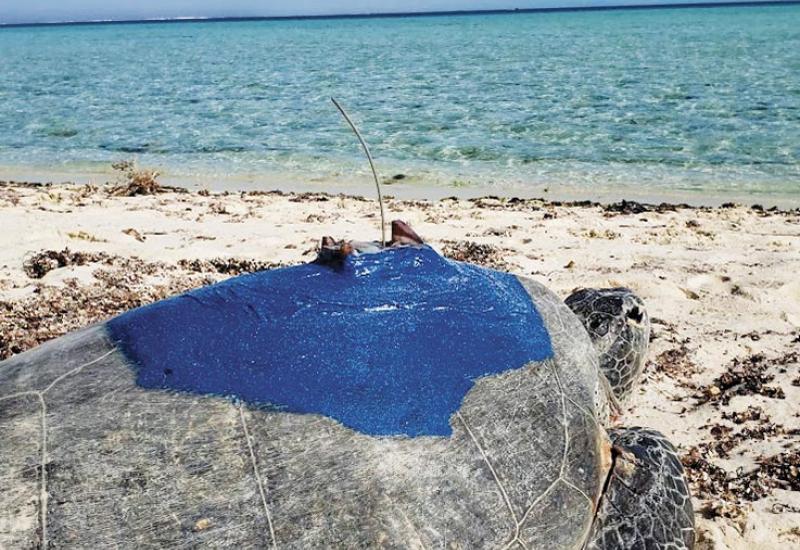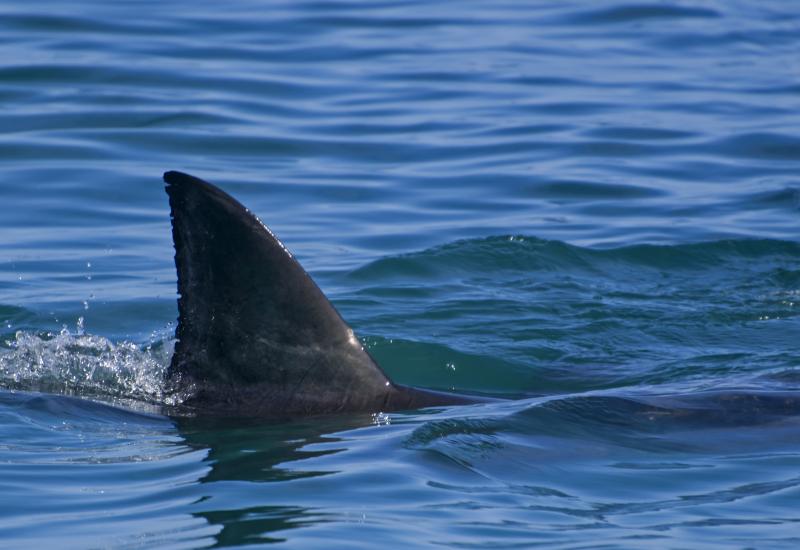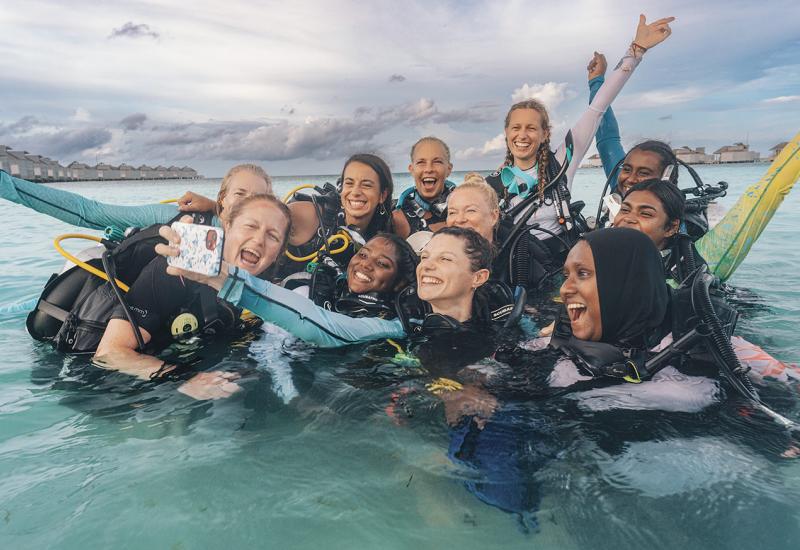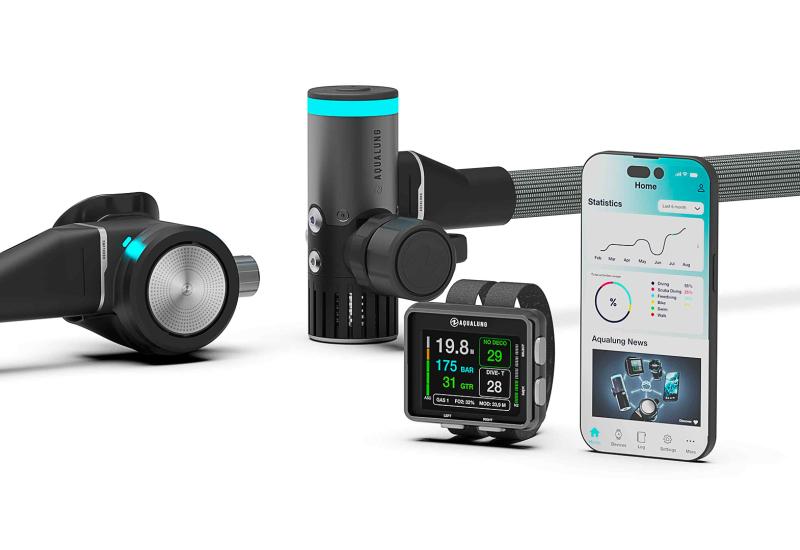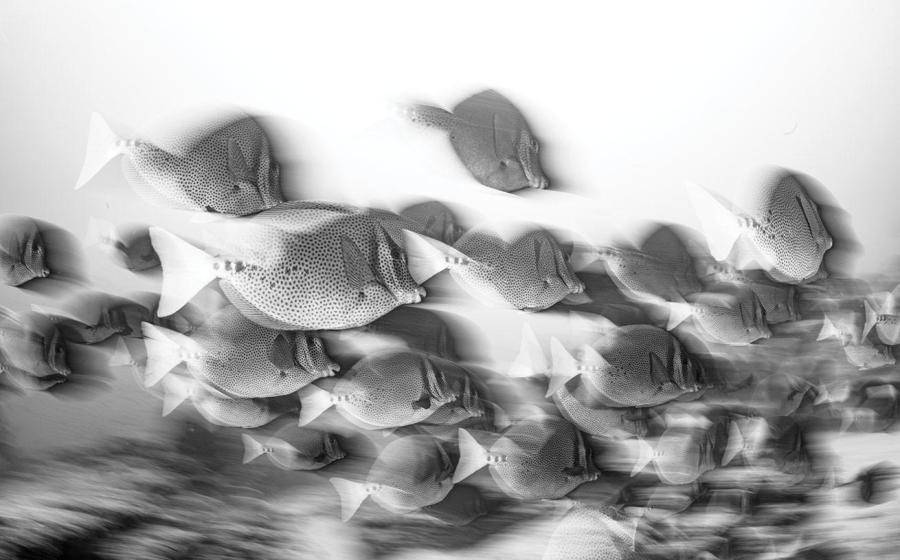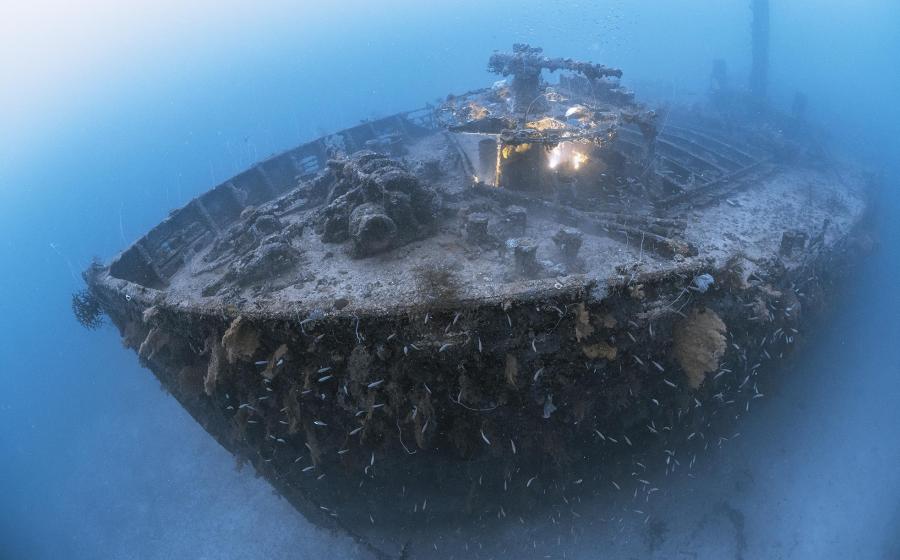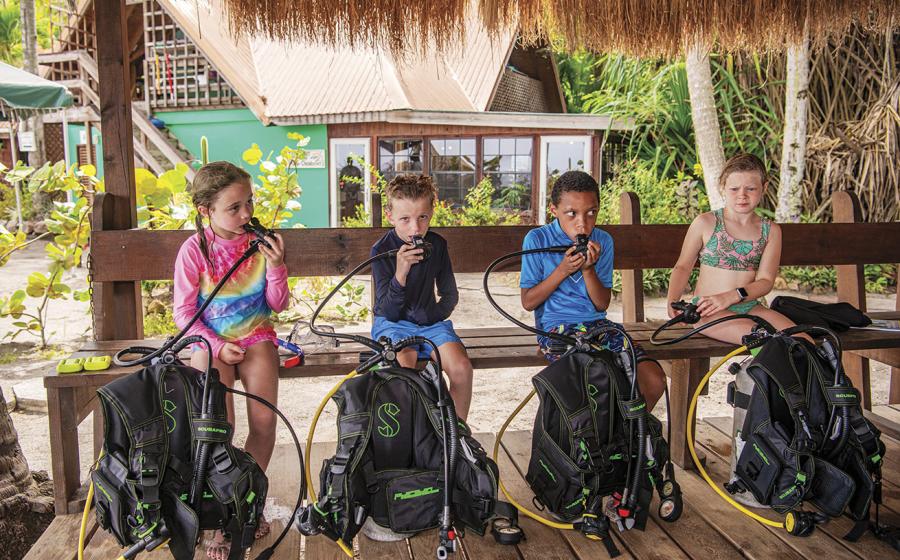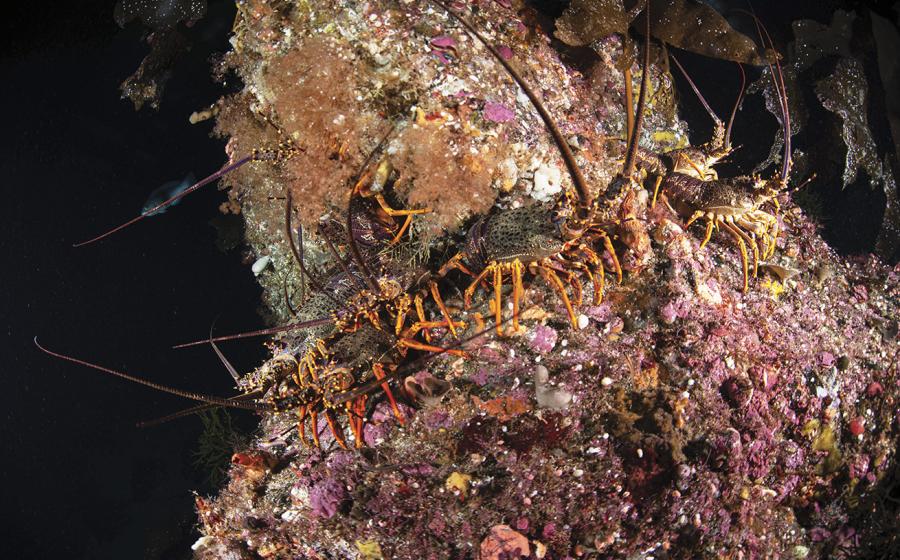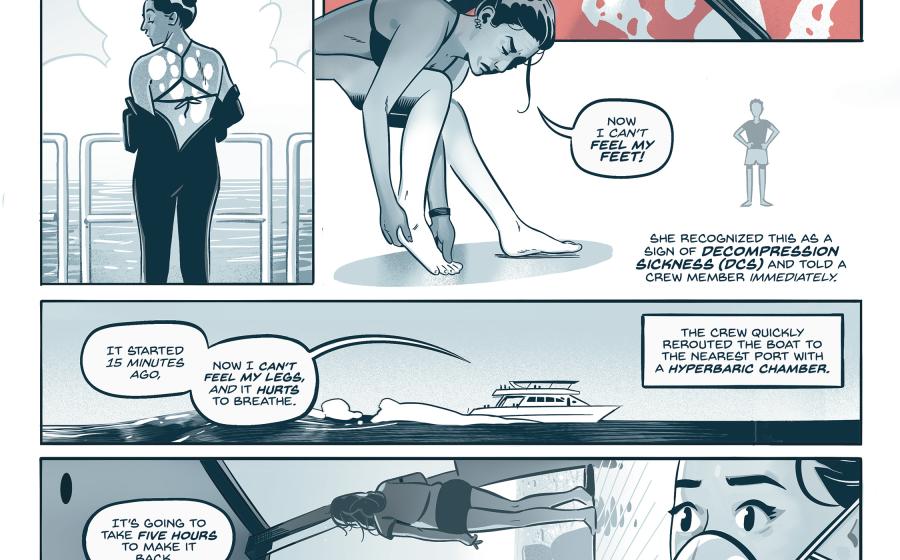Ugandan Technical Divers Are Cleaning Up the World’s Most-Polluted Lake

Courtesy ImageMutumba Faisal and his team is on a mission to clean up Africa's Lake Victoria.
Africa’s largest lake—one of the largest freshwater lakes in the world—also has the dubious distinction of being one of the most polluted lakes in the world.
Lake Victoria, which borders Uganda, Tanzania and Kenya, has almost zero visibility, raw sewage, chemical, fertilizer and pesticide runoff. Combine that with frequent violent thunderstorms exacerbated by global warming, and Lake Victoria is one of the most dangerous lakes to live and work on in the world. (That’s even before you add in the hippos and crocodiles).
But if a team of rescue divers in Uganda has anything to do with it, the health of Lake Victoria’s Ugandan shorelines and two bays will come further into focus for both the local communities and international divers.

Courtesy ImageFaisal partners with local rescue divers and global organizations to help his cause.
Mutumba Faisal, the co-founder of AgrAbility for Africa, is spearheading an initiative to remove ghost nets and other fishing industry debris from the lake’s depths and shoreline thanks to a partnership and grant from Ocean Conservancy’s Global Ghost Gear Initiative. Monthly cleanups along the shorelines of Uganda’s Murchison Bay and Nakiwogo Bay are already underway.
Realizing the important role scuba diving can play in this mission, Faisal turned to local rescue divers to spearhead the underwater cleanups. This also connects the work to local communities, driving awareness for the campaign and how a cleaner Lake Victoria can directly benefit everyone.
Faisal recently sat down with Scuba Diving magazine to discuss this ongoing work. This conversation has been edited for length and clarity.
Q: How long have you been working in these lakeside communities?
A: For over 10 years in the region. We’ve been taking a community approach, trying to reach marginalized and disadvantaged people and give them access to resources. We realized people living in coastal communities are usually affected by lack of transportation. We started to see the effect of isolation and lack of inclusivity and the impact it has on these people. And that’s how we got into trying to do work around Lake Victoria.
Through this, we realized the feedback and the impact of pollution on Lake Victoria from industrial, agricultural and plastic sources. Through reading and learning more about this, we learned about approaches like PADI AWARE—which we hope to become involved with—and other conservation projects.And we realized the way of intervening was to create more awareness about what’s happening, and then the right resources will come. That’s how we got into this diving aspect, by trying to intervene and fight the plastic pollution. We’re educating people that they are part of the problem—and teaching them how they can be part of the solution.
Q: With more than 4,400 miles of shoreline, where do you focus your efforts around Lake Victoria?
A: Our offices are in Kampala but we do our work around Lake Victoria in Murchison Bay and Nakiwogo Bay. We realized because of the concentration of people living around these different bays, there’s a lot of trash that’s generated. When you are in these bays you see a lot of plastic waste, plastic bags, bottles, fishing gear. It’s hugely polluted and dark inside. It’s a big fight to save the lake.
Q: How does the community react when you show up in dive gear to clean up?
A: We realized it’s very catchy when divers dress up in their suits and the community sees them. The children and community get excited. People gather around to see what’s happening, they’re excited about the suits. It’s an opportunity to interact with the diving crew and it gives us an opportunity to talk about diving and conservation issues and the impact on the overall quality of life for the people living here. I explain the social cost of the pollution in the lake, the impact on their catch, the impact on their incomes…and the effect improving the lake’s health will have on families. We talk about fish regeneration, too, and that excites the community. It’s rewarding to see the divers go and disappear in the water and come back with plastic waste.

Courtesy ImagePart of Faisal's mission is cleaning up fishing gear like ghost nets.
Q: How have you addressed the problem of ghost nets among the fishing community?
A: Ghost nets breaking off underwater generate a lot of waste every day. We started by responding to recommendations from the communities themselves. They’re willing to help by bringing back these old nets.
At every landing site you visit in these bays you’ll find a small heap of trash, and when a cleanup happens there’s always a burn site close to that area. This is a solution we are bringing to every landing site. The fishing community does the burning to keep the place where they live and work clean. And we intervene by setting up boxes where people can bring old fishing nets. When they get filled up, they can also call us and we pick it up. If there were nowhere like this to deposit nets. you can imagine the extent of all the gear that would get buried on these shorelines and inside the lake.
Q: Can you tell us more about your monthly conservation dives?
A: Our goal is to do one conservation dive a month with Ocean Conservancy’s Global Ghost Gear Initiative. We found a dive instructor to work with, Sam Atuba, who is also a fire chief in the aviation industry in Uganda. We are working with him and certified rescue diver teams that volunteer to run the cleanup. We’re working with him to help to push to develop the dive industry in Uganda, too. We’re starting a kids program as well as an adult dive program to try to train more divers and also get international divers interested to expand the impact. The goal is to build stewardship in the younger generation through a youth diving program.
Q: What do most people living in these bays think of the lake?
A: Most people have this narrative that Lake Victoria is dark and dirty, so we’re going to try to give another image of Lake Victoria so people see beauty in it and want to conserve it. We're planning a diving festival to show the prettier side of the lake, it’s part of a campaign we are going to promote. We go to one island in Lake Victoria that has cleaner water and better biodiversity to give another idea of the waters here and to encourage people to come and see there are beautiful places to see here. In most places the visibility doesn’t go beyond one meter [about three feet]. But there are species of tilapia, snails, nile perch and other fish you don't see in other places here. Through partnerships and local stewardship development, I am positive things will get better here someday.


